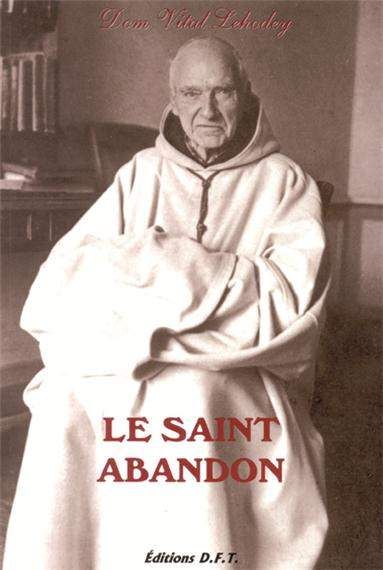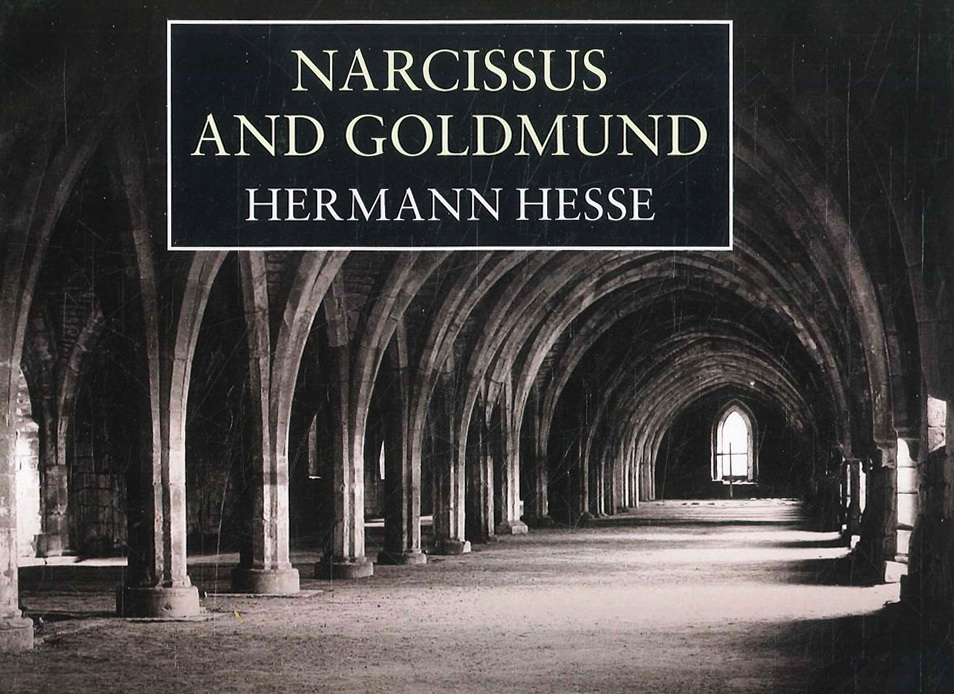But the perfect love of God, which is only to be found in Charity, is a disinterested love, which loves the sovereign goodness of God in Himself and for His sake only, without any aim except that He may be that which He is, eternally loved, glorified, and adored, because He deserves to be so, as St. Thomas says. And it is in the fact that it attains more perfectly its final end that its pre-eminence consists. This is very clearly shown by Blessed Francis in the same Treatise where he tells us that Eternal life or Salvation is shown to Faith, and is prepared for Hope, but is given only to Charity. Faith points out the way to the land of promise as a pillar of cloud and of fire, that is, light and dark; Hope feeds us with its manna of sweetness, but Charity actually introduces us into it, like the Ark of the Covenant, which leads us dry-shod through the Jordan, that is, through the judgment, and which shall remain amidst the people in the heavenly land promised to the true Israelites, where neither the pillar of Faith serves as a guide, nor the manna of Hope is needed as food. –‘St Francis de Sales ‘The Spirit of St Francis’
Monthly Archives: September 2016

Blessed Henry Suso’s blessed plight
There is not one amongst the saints that has not lived on the cross, not one that has not been content to suffer thereon with his adorable Master. All of them, like our holy father, St. Benedict, “preferred the scorn of men to their praises, and desired rather to be exhausted with labour than enriched with the favours of this world. Blessed Henry Suso, having been given a short and, with him, extremely rare respite from his continual trials, complained thus of it to the religious sisters who were his spiritual daughters: “I fear I am going to the bad, because for almost four weeks now I have had nothing to endure from anybody. I am very much afraid God has forsaken me. ” Scarcely had he spoken these words when someone came with the news that two powerful persecutors of his had sworn to destroy him. He experienced at first an emotion of fear. “I should like to know how I have deserved to be slain.” “It is on account of the conversions you have made.” “Then God be praised,” he replied; and returning to the convent grille, exclaimed joyously: “Courage, my daughters! God has me still in His thoughts, He has not yet forgotten me.”
Dom Vitalis Lehodey ‘Holy Abandonment’


Arise hymn for the week

Silence of Mary and Joseph
...at the Annunciation, the choice that Mary makes in her fiat is something altogether different, because it is a choice of the gift that the Father gives her of His Son. This is a gift that completely surpasses her, and it is only in a wholly pure and contemplative faith that she is able to receive it. It is for this reason that this gift plunges her into silence, a silence which binds her to the will of the Father, to the Holy Spirit Who “came upon her” and to the One Who is given to her: her Son. It is impossible for her to communicate this secret.
So Mary keeps the secret of the Annunciation, and she can do so because she trusts Joseph. We share a secret with someone because we trust that person, but sometimes we need to keep silent, and it is the mark of an even greater trust. Mary could ask anything of Joseph, and she asked him to endure this silence. -Father Marie-Dominique Philippe ‘The Mystery of St Joseph’


Hermann Hesse: Narcissus and Goldmund
All this gave him plenty to do, and it all made sense as long as he was working on his St. John. It took a long time. The last delicate shapings of face and hands were done in solemn, patient concentration. He finished the statue in a small wooden shed behind the assistants’ workshop. Then the hour of morning came when the work was finished. Goldmund fetched a broom, swept the shed meticulously clean, gently brushed the last sawdust from his Saint’s hair, and stood in front of his statue for a long time, an hour or longer, filled with the solemn feeling of a rare and great experience which he might perhaps know one more time in the course of his life or which might remain unique. A man on the day of his wedding or on the day he is knighted, a woman after the birth of her first child might feel such emotions in the heart: a deep reverence, a great earnestness, and at the same time a secret fear of the moment when this high, unique experience would be over, classified, swallowed by the routine of the days.
He saw his friend Narcissus, the guide of his adolescent years, clad in the robe and role of the beautiful, favorite disciple, stand listening with lifted face and an expression of stillness, devotion, and reverence that was like the budding of a smile. Suffering and death were not unknown to this beautiful, pious, spiritualized face, to this slender figure that seemed to be floating, to these graceful, piously raised long hands, although they were filled with youth and inner music; but despair was unknown to them, and disorder, and rebellion. The soul of those noble traits might be gay or sad, but its pitch was pure, it suffered no discordant note.
Goldmund stood and contemplated his work. His contemplation began as a meditation in front of the monument to his youth and friendship, but it ended in a tempest of sorrow and heavy thoughts. There his work was, the beautiful disciple would remain, his delicate flowering would never end. But he, the maker, would have to part with his work; tomorrow it would no longer be his, would no longer be waiting for his hands, would grow and unfold under them no longer, was no longer a refuge to him, a consolation, a purpose in his life. He remained behind, empty. And therefore it seemed to him that it would be best to say farewell today not only to his St. John but also to the master, to the city, to art. There was nothing here for him to do any more; no images filled his soul that he might have carved. The longed-for image of images, the figure of the mother of men, was not yet accessible to him, would not be accessible for a long time. Should he go back to polishing little angel figures now and carving ornaments?
He tore himself away and walked over to the master’s workshop. Softly he entered and stood at the door, until Niklaus noticed him and called out to him.
“What is it, Goldmund?”
“My statue is finished. Perhaps you’ll come and take a look at it before you go up to eat.”
“Gladly. I’ll come right now.”
Together they walked over, leaving the door open for more light. Niklaus had not seen the figure for a while; he had left Goldmund undisturbed at his work. Now he examined it with silent attention. His closed face grew beautiful and light; Goldmund saw his stern eyes grow happy.
“It is good,” the master said. “It is very good. It is your assistant’s piece, Goldmund. Now you have finished learning. I’ll show your figure to the men at the guild and demand that they make you a master for it; you deserve it.”
Goldmund did not value the guild very highly, but he knew how much appreciation the master’s words meant, and he was glad.
While Niklaus walked slowly around the figure of St. John, he said with a sigh: “This figure is full of piety and light. It is grave, but filled with joy and peace. One might think that the man who made this had nothing but light and joy in his heart.”
Goldmund smiled.
“You know that I did not portray myself in this figure, but my dearest friend. It is he who brought light and peace to the picture, not I. It was not really I who made the statue; he gave it into my soul.”
“That may be so,” said Niklaus. “It is a secret how such a work comes into being. I am not particularly humble, but I must say: I have made many works that fall far behind yours, not in craft and care, but in truth. No, you probably know yourself that such a work cannot be repeated. It is a secret.”
“Yes,” Goldmund said. “When the figure was finished and I looked at it, I thought: you can’t make that again. And therefore I think, Master, that I’ll soon go back to wandering.”
Astonished and annoyed, Niklaus looked at him. His eyes had grown stern again.
“We’ll speak about that. For you, work should really begin now. This is not the moment to run away….


Together immersed
Oh, lamps of fires,
In whose splendors the deep caravans of sense which were dark and blind
With strange brightness
Give heat and light together to their Beloved!
It must be understood that this enlightenment of splendor is not like a material fire which, with its burst of flame, enlightens and heats things that are outside it, but is like one that heats things that are within it, as is the soul in this state. For this reason, the soul says: ‘In whose splendors’: that is to say, it is ‘within’—not ‘near’ but ‘within’—its splendors, in the flames of the lamps (Divine infusion), the soul being transformed into flame. And so we shall say that it is like the air which is within the flame and is enkindled and transformed into fire, for flame is naught else but enkindled air; and the movements made by this flame are not simply those of air nor simply those of fire, but of air and fire together, and the fire causes the air that is enkindled within it to burn. –St John of the Cross ‘Living Flame of Love’


Quant de Vous Seul

Final station of the Cross at Immaculate Conception Cleveland
Pleasant day of socializing and worship. Here is a piece, a rondeau (in French), performed by Mignarda, during their splendid performance at Immaculate Conception.
When I simply lose sight of you
You, by whom I am so cherished,
My misfortune attacks me so fiercely
That I am so overcome with sadness,
That it would take little for my heart to fail.
Because I have become yours
More than anyone’s under the heaven,
All my joy leaves me
When I simply lose sight of you
By whom I am held so dear,
My misfortune attacks me so fiercely.
That I can well see that I am stripped
Of all my goods, dumb like a beast,
For whom there is no longer warmth,
For well I know that I must be
Alone, deprived of every good thing.
When I simply lose sight of you
You, by whom I am so cherished,
My misfortune attacks me so fiercely
That I am so overcome with sadness,
That it would take little for my heart to fail.
Johannes Ockeghem (c.1425 - 1497)

Book by Mater Dolorosa lecturer David J. Rothenberg, chair of the Case Western Music Department


Recent Comments